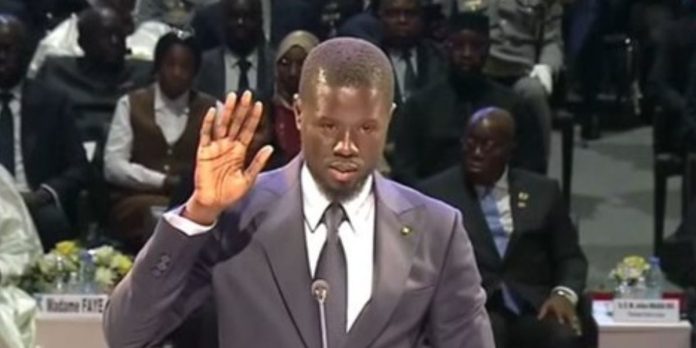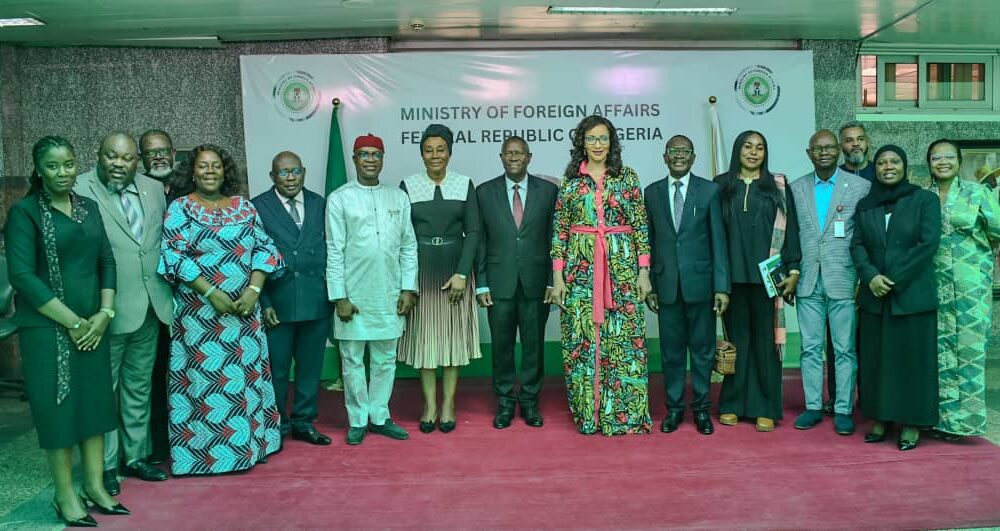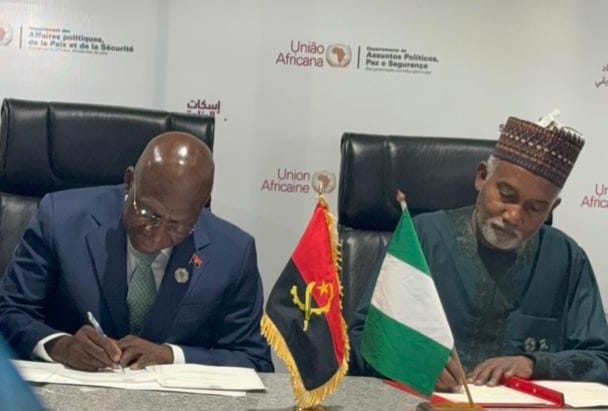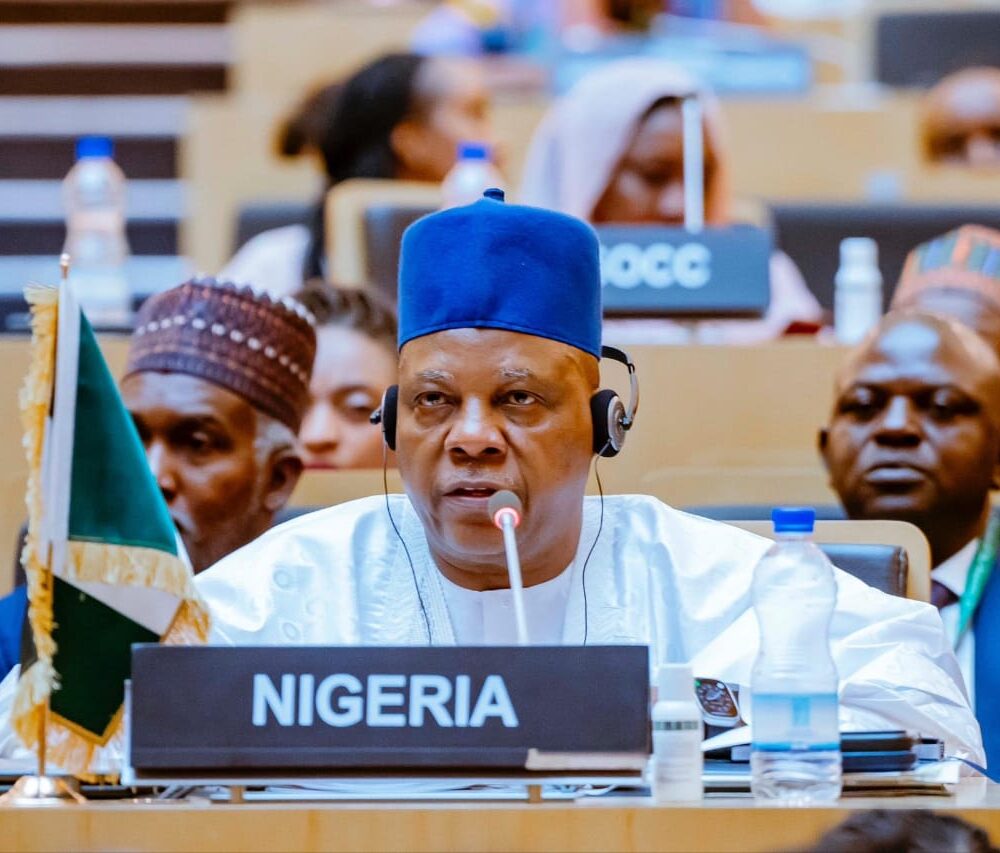Bassirou Diomaye Faye has ben sworn as the youngest president in Senegal and Africa after sweeping to a first-round victory on a pledge of radical reform 10 days after he was released from prison.
The 44-year-old leader took the oath of office on Tuesday at an exhibition centre in the new town of Diamniadio near the capital Dakar.
“Before God and the Senegalese nation, I swear to faithfully fulfil the office of President of the Republic of Senegal,” he said.
The ceremony was held in the presence of several African leaders, including Nigeria’s Bola Ahmed Tinubu.
The formal handover of power with President Macky Sall will then take place at the presidential palace in Dakar.
Faye was one of a group of political opponents freed from prison 10 days before the March 24 presidential ballot under an amnesty announced by Sall who had tried to delay the vote.
Faye’s campaign was launched whilst he was still in detention.
The former tax inspector will become the West African state’s fifth president since independence from France in 1960.
Working with his mentor Ousmane Sonko, who was barred from the election, Faye declared their priorities in his victory speech: national reconciliation, easing a cost-of-living crisis and fighting corruption.
The anti-establishment leader has vowed to restore national sovereignty over key assets such as the oil, gas and fishing sectors.
Faye wants to leave the regional CFA franc, which he sees as a French colonial legacy, and to invest more in agriculture with the aim of reaching food self-sufficiency.
But he has also sought to reassure investors that Senegal “will remain a friendly country and a sure and reliable ally for any partner that engages with us in virtuous, respectful and mutually productive cooperation.”
On the international stage, Faye seeks to bring military-run Burkina Faso, Mali and Niger back into the fold of regional Economic Community of West African States (ECOWAS) bloc.
Commonly known as Diomaye, or “the honourable one” in the local Serer language, he won the March 24 election with 54.3 percent of the vote.
It was a remarkable turnaround after the government had dissolved the Pastef party he founded with Sonko in 2014, with Sall postponing the election.
Faye, a practising Muslim from a humble background with two wives and four children, represents a new generation of youthful politicians.
However Faye and the government he must unveil will quickly face major challenges.
He does not have a majority in the National Assembly and will have to look to build alliances to pass new laws, or call a legislative election, which will become an option from mid-November.
The biggest challenge will be creating enough jobs in a nation where 75% of the 18-million population is aged under 35 and the unemployment rate is officially 20%.
Many youths have considered the future so bleak they have risked their lives to join the waves of migrants trying to reach Europe.





